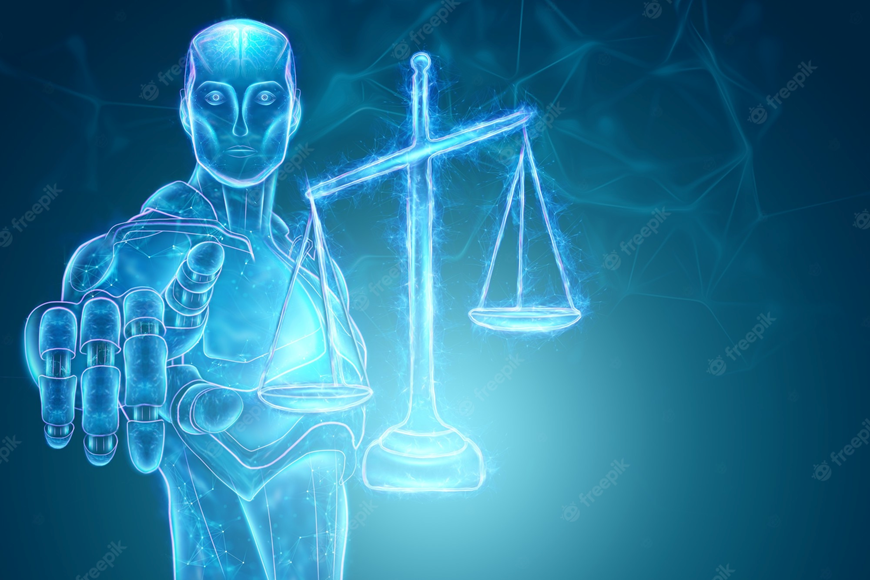Artificial Intelligence and the Future of Law: Can AI replace Judges?
The world of law is changing rapidly. Thanks to advances in artificial intelligence (AI) and other new technologies, it is becoming easier for people to find relevant legal information, understand that information, and use it to solve problems - from filling out simple forms to answering complicated questions. If you are an avid reader of technology news, you might think that AI will soon take over the legal profession. After all, lawyers are already using AI to help them sort through massive volumes of documents, analyze data, and even draft contracts - tasks that would be too time-consuming or difficult for humans alone. Is there more in store for us? Are we on the cusp of AI judges? And if so, what might that mean for the future of law as we know it today? To answer these questions, let us take a look at how AI is currently being used in the judiciary.
What is AI?
Artificial
intelligence - or AI - refers to computer systems that can perform tasks that
normally require human intelligence, such as understanding language,
recognizing images, communicating with other systems, learning new information,
and solving problems. Applications of AI include things like machine learning,
natural language processing, and computer vision. AI is a broad term that
describes many different technologies, disciplines, and subfields. The goal of
AI is to create systems that mimic human intelligence and can solve the same
problems as humans, such as making decisions, solving problems, finding
patterns, and learning new things. AI has been around for many decades, but
there have been significant advances in recent years as both computing power
and data availability have increased.
What is currently being done with AI
in the legal field?
AI can be
used to find relevant information and data, process that information and data,
and produce reports and summaries. AI can also be used to help people navigate
through this information by finding the parts that are most relevant to them
and allowing them to navigate through the rest of the information as needed.
Currently, AI is being used by law firms to help them manage their practices.
AI is used to read and sort through large volumes of documents. AI is also
being used to draft contracts, connect people with legal resources and
information, and help with litigation - including working with judges.
Web-based AI tools can be used by anyone, anywhere to solve specific problems.
Can AI be used to make judgments and
legal decisions?
No. AI is
not yet capable of making sound legal decisions on its own. The AI systems
currently being developed and used by lawyers are intended to help them do
their jobs more efficiently and effectively. Currently, AI systems are not yet
able to independently analyze the facts of a case and reach a conclusion. For
example, AI systems are not yet able to read a court case and decide who should
win. Although AI will continue to make great strides in the coming years, it is
unlikely that it will ever be able to make informed decisions on its own.
Nevertheless, AI systems can be used to support human decision-making. When a
judge or jury is presented with some facts or conclusions, AI can help look for
patterns, connections, and other information that may have been overlooked. AI
can help human decision-makers make their conclusions more complete and
accurate.
Who will be most affected by AI in
the legal system?
Everyone who
uses the legal system is likely to be affected by the increasing role of AI in
the legal field. As AI continues to be used to support the practice of law,
attorneys will likely be able to do more with less. If a lawyer's time is
currently taken up by administrative work, researching cases and precedents,
drafting simple contracts, etc., they may be able to spend more time on their
core tasks - such as analyzing difficult issues and drafting complex contracts.
This could allow them to better serve their clients, or they could serve more
clients. AI could also increase efficiency in the courts, which could help make
the administration of justice more cost-effective. This could lead to an
overall reduction in legal costs, which would likely benefit all users of the
legal system, whether they have a lawyer or not.
How can the law be better supported
by AI?
Law can be
better supported by AI by advancing AI systems and applications, improving data
standards and accessibility, and developing useful applications and interfaces
that people can easily use. As AI continues to advance and new developments
emerge, people working in the legal profession and those who interact with the
legal system need to be open to change. While it is unlikely that AI will soon
be able to make legal decisions on its own, AI will likely continue to play a
role in how people navigate the legal system. The future of law will likely be
increasingly supported by AI systems. This does not necessarily mean the end of
human lawyers, but it could mean a shift in the way the legal profession works
- and in the way people interact with the law and legal information.




Comments
Post a Comment